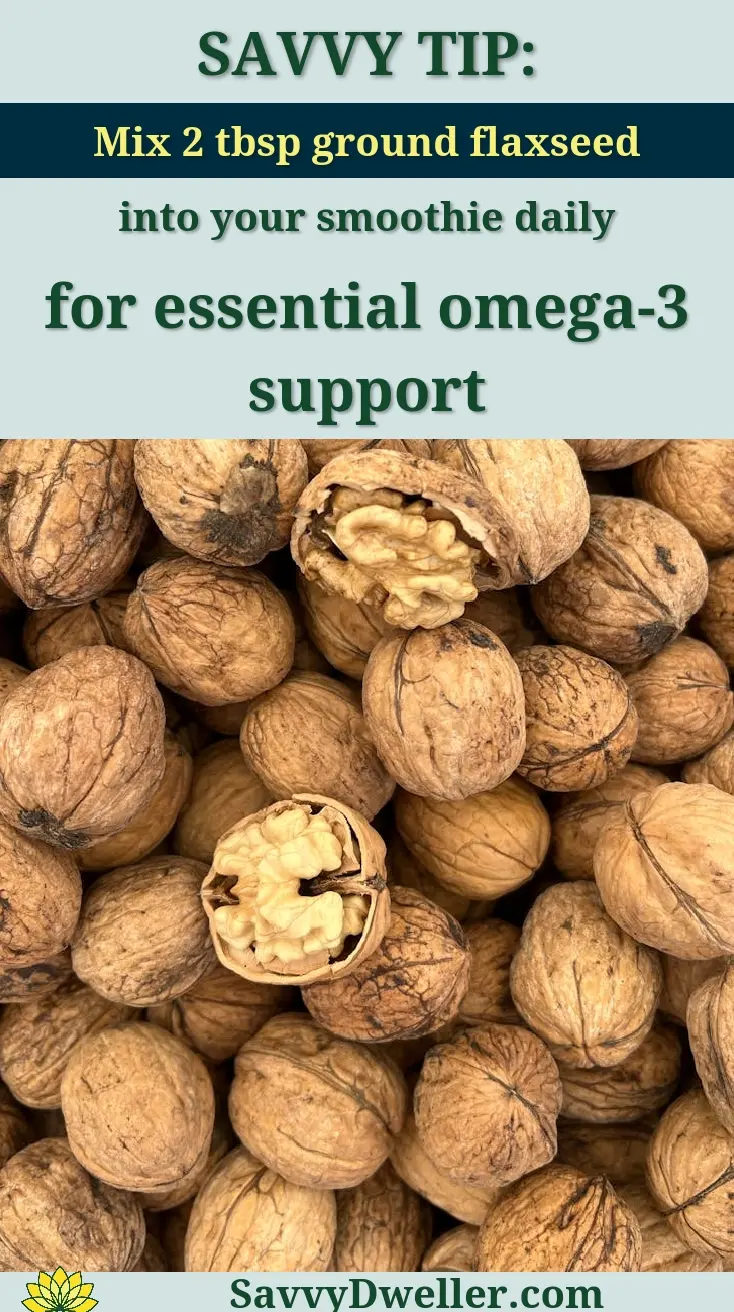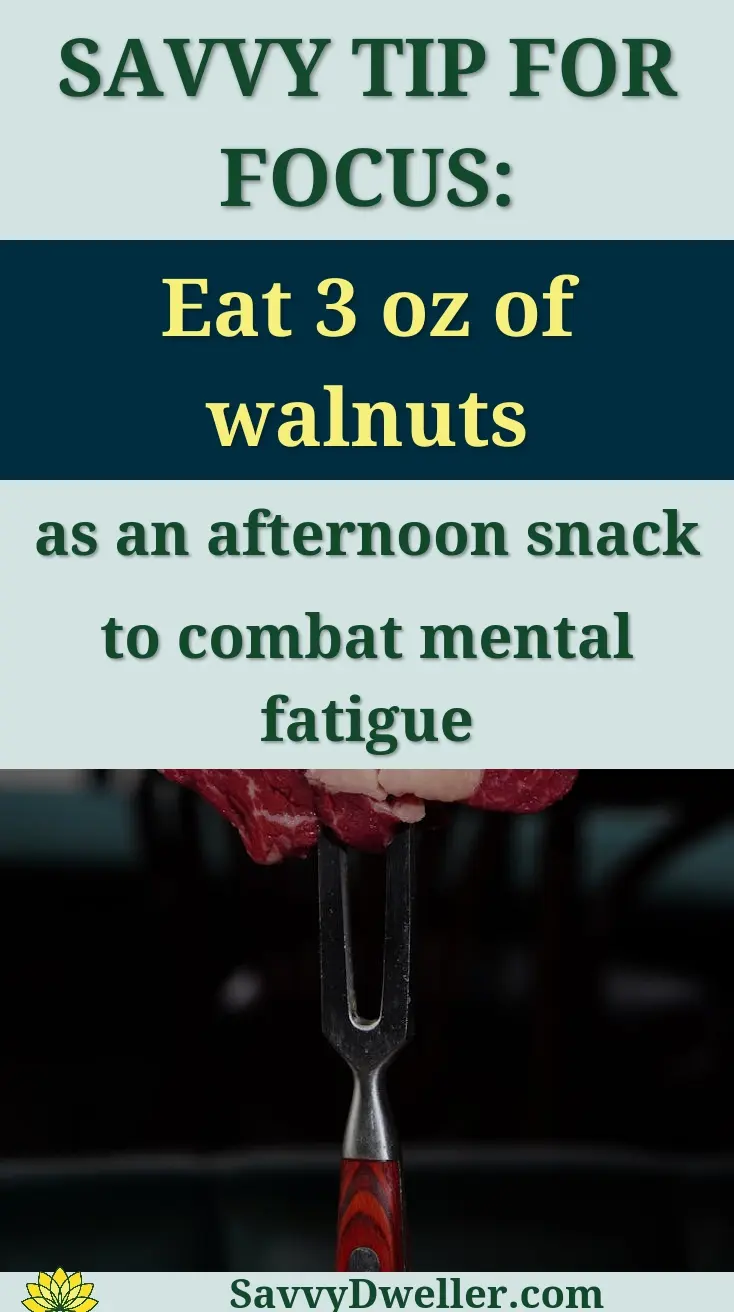8 Foods to Eat for Brain Fog to Improve Focus and Clarity
Does your mind feel like it’s wrapped in cotton, struggling to form complete thoughts or remember where you put your keys five minutes ago? Brain fog affects millions of people daily, leaving them feeling mentally exhausted and frustrated with their lack of focus. You’re not imagining it, and you’re definitely not alone in this cloudy mental state.
The good news is that simple dietary changes can significantly support mental clarity and sharpen your focus. We’ve researched the science behind brain-supporting nutrition and identified eight powerful foods that can help clear the mental haze. These aren’t exotic superfoods or expensive supplements—they’re accessible, delicious options you can easily incorporate into your daily meals starting today.
Contents
- At a Glance: The Best Brain-supporting Foods
- 1. Fatty Fish (Salmon, Sardines, Mackerel)
- 2. Leafy Greens (Spinach, Kale, Arugula)
- 3. Blueberries and Dark Berries
- 4. Nuts and Seeds (Walnuts, Pumpkin Seeds, Chia)
- 5. Avocados
- 6. Eggs
- 7. Dark Chocolate (70% Cacao or Higher)
- 8. Turmeric and Brain-supporting Spices
- The Science Made Simple: Why Brain Fog Happens
- Quick Meal Ideas to Support Mental Clarity
- Common Mistakes to Avoid When Eating for Brain Health
- Frequently Asked Questions
- Final Words
- Additional Resources for You:
At a Glance: The Best Brain-supporting Foods
When you’re dealing with mental fog, the right foods can make all the difference in supporting your cognitive function. These eight powerhouse foods contain specific nutrients that directly support brain health and may help clear away that cloudy feeling that makes focusing so difficult.
The foods that help brain fog work through different mechanisms. Some provide omega-3 fatty acids that support brain cell structure. Others deliver antioxidants that protect against oxidative stress in neural tissue.
Here’s your quick reference guide to the best foods for brain fog that can help restore mental clarity:
- Fatty Fish: Omega-3 powerhouses that support memory and focus
- Leafy Greens: Folate-rich vegetables that aid neurotransmitter production
- Blueberries: Antioxidant champions that protect brain cells
- Nuts and Seeds: Vitamin E sources that guard against cognitive decline
- Avocados: Monounsaturated fat providers that improve blood flow
- Eggs: Choline suppliers that support brain communication
- Dark Chocolate: Flavonoid sources that enhance mental performance
- Turmeric: Anti-inflammatory spice that crosses the blood-brain barrier
Each of these foods that enhance mental clarity works differently, but they all share one thing in common. They provide your brain with the specific nutrients it needs to function at peak performance throughout your day.
The beauty of these foods to improve focus and clarity lies in their versatility. You don’t need to overhaul your entire diet overnight. Small, consistent additions of these brain-supporting foods can create meaningful changes in how sharp and alert you feel.
1. Fatty Fish (Salmon, Sardines, Mackerel)
How It Supports Brain Function
Fatty fish stand as powerhouses for mental clarity because they’re packed with omega-3 fatty acids, particularly DHA (docosahexaenoic acid). Your brain is roughly 60% fat, and DHA makes up about 40% of the polyunsaturated fats in your brain tissue.
These omega-3s help maintain the structure of brain cell membranes, making them more flexible and efficient at transmitting signals. When your brain cells communicate better, you experience clearer thinking and improved focus. Unfortunately, many people may not be getting enough omega-3s in their diet, which can lead to cognitive issues. Recognizing the signs of omega-3 deficiency is essential for maintaining optimal brain health.
Research shows that people who regularly eat fatty fish perform better on cognitive tests and report less mental fatigue. The anti-inflammatory properties of omega-3s also help protect your brain from oxidative stress that contributes to brain fog.
Best Types and Preparation Methods
Wild-caught salmon, sardines, mackerel, and anchovies offer the highest concentrations of brain-supporting omega-3s. Smaller fish like sardines and anchovies are particularly beneficial because they contain fewer environmental toxins while delivering maximum nutritional punch. Including these fish in your diet can significantly boost heart health and brain function. Salmon, in particular, is known for its high levels of omega-3 fatty acids, which are essential for reducing inflammation and promoting overall wellness.
Cooking methods matter for preserving these delicate fats. Gentle preparation techniques work best:
- Baking at temperatures below 350°F
- Poaching in seasoned broth
- Light sautéing with olive oil
- Grilling for short periods over medium heat
Avoid deep frying or high-heat cooking, which can damage the omega-3 fatty acids and reduce their brain-boosting benefits.
Simple Ways to Add More to Your Diet
Getting more fatty fish doesn’t require complicated recipes or expensive ingredients. Canned sardines and salmon provide the same brain benefits as fresh fish at a fraction of the cost.
Try these easy additions to your routine:
- Add canned salmon to scrambled eggs for a protein-rich breakfast
- Mash sardines with avocado on whole grain toast
- Keep single-serving pouches of salmon in your desk for quick snacks
- Make simple fish cakes using canned mackerel and sweet potato
- Toss flaked salmon into salads or grain bowls

2. Leafy Greens (Spinach, Kale, Arugula)
How It Supports Brain Function
Leafy greens deliver a unique combination of nutrients that directly combat brain fog. They’re loaded with folate, vitamin K, and nitrates that support healthy blood flow to your brain.
Folate helps your body produce neurotransmitters like serotonin and dopamine, which regulate mood and focus. Vitamin K supports cognitive function by maintaining healthy brain cell membranes and reducing inflammation.
The nitrates in leafy greens convert to nitric oxide in your body, which dilates blood vessels and improves circulation. Better blood flow means more oxygen and nutrients reach your brain, helping clear mental cobwebs and sharpen concentration.
Fresh Vs. Frozen: Getting the Most Nutrients
Frozen leafy greens often contain more nutrients than fresh ones because they’re flash-frozen at peak ripeness. Fresh greens can lose up to 50% of their folate content within a week of harvest, while frozen varieties maintain their nutritional value for months.
However, fresh greens have their advantages too. Raw spinach and arugula provide maximum vitamin K, which breaks down during the blanching process used before freezing.
For optimal brain support:
- Use fresh greens in salads and smoothies
- Choose frozen greens for cooked dishes like soups and stir-fries
- Buy fresh greens from local sources when possible
- Store fresh greens properly to minimize nutrient loss
Simple Ways to Add More to Your Diet
The key to eating more leafy greens is making them convenient and tasty. Pre-washed baby spinach and mixed greens eliminate prep time while delivering maximum brain-supporting nutrients.
Easy incorporation strategies include:
- Blend a handful of spinach into morning smoothies (you won’t taste it)
- Use large lettuce or collard leaves as wraps instead of tortillas
- Wilt spinach into scrambled eggs during the last minute of cooking
- Add arugula to pizza, pasta, or grain bowls as a fresh topping
- Make pesto using half basil and half spinach or kale
- Massage chopped kale with lemon juice and olive oil for quick salads
Also See: 10 Collagen-rich Foods for Youthful Skin & Joints
3. Blueberries and Dark Berries
How It Supports Brain Function
Blueberries earn their reputation as brain food through their exceptional concentration of anthocyanins – powerful antioxidants that give berries their deep purple-blue color. These compounds cross the blood-brain barrier and accumulate in areas responsible for memory and executive function.
Studies show that people who eat blueberries regularly demonstrate improved working memory, faster processing speed, and better task-switching abilities. The anthocyanins help protect brain cells from oxidative damage while promoting the growth of new neural connections.
Dark berries also contain flavonoids that support healthy blood flow to the brain and may help reduce inflammation associated with mental fatigue and cognitive decline.
Fresh Vs. Frozen: Maximizing Antioxidants
Frozen blueberries actually contain higher antioxidant levels than fresh berries in many cases. The freezing process breaks down cell walls, making the anthocyanins more bioavailable to your body.
Fresh berries offer their own benefits, particularly when they’re locally grown and consumed within a few days of harvest. However, most fresh berries in grocery stores have traveled long distances and lost some nutritional value.
For maximum brain-boosting power:
- Buy frozen organic berries for year-round availability
- Choose fresh berries when they’re in season locally
- Look for deep, rich colors regardless of fresh or frozen
- Avoid berries with added sugars or artificial ingredients
Simple Ways to Add More to Your Diet
Berries are naturally sweet and versatile, making them easy to incorporate into any eating pattern. Just half a cup of blueberries provides significant brain-supporting antioxidants without adding excess sugar to your diet.
Practical ways to eat more berries:
- Add frozen berries directly to oatmeal while cooking
- Blend berries into smoothies with protein powder and spinach
- Top yogurt or cottage cheese with fresh berries and nuts
- Make chia pudding using berry puree as natural sweetening
- Keep dried berries (without added sugar) for portable snacks
- Stir berries into pancake or muffin batter for brain-boosting breakfast treats
4. Nuts and Seeds (Walnuts, Pumpkin Seeds, Chia)
How It Supports Brain Function
Walnuts are shaped like tiny brains for a reason – they’re packed with alpha-linolenic acid (ALA), a plant-based omega-3 that supports cognitive function. This essential fatty acid helps maintain the protective sheath around brain cells, allowing signals to travel more efficiently.
Pumpkin seeds deliver a powerhouse of nutrients that combat brain fog. They’re loaded with zinc, which plays a crucial role in memory formation, and magnesium, which calms the nervous system and reduces mental fatigue.
Chia seeds act like tiny sponges in your brain, helping stabilize blood sugar levels that directly impact your ability to focus. When your glucose stays steady, your brain receives consistent fuel instead of experiencing the energy crashes that worsen brain fog. Chia seeds are not only beneficial for blood sugar control but also provide numerous health advantages. Exploring the eight amazing health benefits of chia seeds reveals how they can enhance your overall well-being.
Best Storage and Preparation Tips
Store nuts and seeds in airtight containers in the refrigerator to prevent their delicate oils from going rancid. Exposure to heat and light quickly destroys the brain-supporting nutrients you’re trying to preserve.
Soak chia seeds for 10-15 minutes before eating to unlock their nutrients and make them easier to digest. This simple step transforms them into a gel-like consistency that your body can absorb more effectively.
Buy raw, unsalted varieties whenever possible. Roasted nuts often lose valuable nutrients during processing, and excess sodium can contribute to inflammation that worsens mental clarity issues.
Simple Ways to Add More to Your Diet
- Sprinkle chopped walnuts on your morning oatmeal or yogurt
- Blend pumpkin seeds into smoothies for a creamy texture boost
- Mix soaked chia seeds into water with lemon for a brain-supporting drink
- Keep a small container of mixed nuts and seeds at your desk for afternoon snacking
- Add ground nuts to salad dressings for extra richness and nutrients
5. Avocados
How It Supports Brain Function
Avocados provide monounsaturated fats that improve blood flow to your brain, delivering the oxygen and nutrients needed for clear thinking. Better circulation means your mental processes can work more efficiently, reducing that frustrating foggy feeling. Incorporating avocados into your diet not only supports brain health but also offers a range of other health benefits. From heart health to improved digestion, avocados are a powerhouse of nutrition that can enhance overall well-being.
The folate in avocados supports neurotransmitter production, particularly dopamine and serotonin. These brain chemicals directly influence your mood, motivation, and ability to concentrate on tasks.
Avocados also contain lutein, an antioxidant that accumulates in brain tissue and may help protect against cognitive decline. This nutrient acts like internal sunglasses for your brain cells, shielding them from oxidative stress.
Selecting and Storing for Peak Nutrition
Choose avocados that yield slightly to gentle pressure but aren’t mushy. The skin should be dark and free of large dents or soft spots that indicate overripeness.
Store unripe avocados at room temperature to preserve their nutrient content, then refrigerate once they’re ready to eat. Cold temperatures slow down the ripening process and help maintain their brain-supporting compounds.
Speed up ripening by placing avocados in a paper bag with a banana. The ethylene gas naturally produced by the banana accelerates the process without compromising nutritional value.
Simple Ways to Add More to Your Diet
- Mash half an avocado on whole-grain toast for a focus-supporting breakfast
- Add sliced avocado to sandwiches and wraps instead of mayonnaise
- Blend avocado into smoothies for creamy texture without dairy
- Make guacamole with extra herbs like cilantro for additional brain benefits
- Dice avocado into salads just before serving to maintain freshness

6. Eggs
How It Supports Brain Function
Egg yolks contain choline, a nutrient that your brain uses to produce acetylcholine – a neurotransmitter essential for memory and learning. Many people don’t get enough choline in their diet, which can contribute to the mental cloudiness of brain fog.
The high-quality protein in eggs provides all essential amino acids your brain needs to manufacture neurotransmitters. These chemical messengers carry signals between brain cells, directly affecting your ability to think clearly and stay focused.
Eggs also supply B vitamins, particularly B12 and folate, which support healthy brain metabolism. These nutrients help your brain cells produce energy efficiently, reducing the fatigue that often accompanies poor mental clarity.
Cooking Methods That Preserve Nutrients
Gentle cooking methods like poaching or soft-boiling preserve the most nutrients, especially the delicate choline in egg yolks. High heat can break down these brain-supporting compounds.
Keep egg yolks slightly runny when possible to maintain their nutritional integrity. The creamy texture indicates that heat-sensitive nutrients remain intact and available for your brain to use.
Avoid overcooking eggs until the yolks turn green or rubbery. This color change signals that beneficial compounds have been damaged by excessive heat exposure.
Simple Ways to Add More to Your Diet
- Start your day with a veggie-packed omelet for sustained brain energy
- Add hard-boiled eggs to salads for extra protein and choline
- Make egg salad with mashed avocado instead of mayonnaise
- Poach eggs over quinoa bowls for a complete brain-supporting meal
- Keep hard-boiled eggs in the fridge for quick, clarity-boosting snacks
7. Dark Chocolate (70% Cacao or Higher)
How It Supports Brain Function
Dark chocolate contains flavonoids that cross the blood-brain barrier and accumulate in brain regions responsible for memory and attention. These compounds help protect brain cells from damage while improving communication between neurons. Enjoying dark chocolate not only boosts brain function but also comes with many health benefits. Some of the top benefits include improved heart health, lower blood pressure, and enhanced mood.
The natural caffeine and theobromine in dark chocolate provide gentle mental stimulation without the jittery effects of coffee. This combination enhances focus while promoting a calm, alert state of mind.
Dark chocolate also triggers the release of endorphins and increases serotonin levels in your brain. These mood-boosting chemicals can help clear mental fog by reducing stress and anxiety that interfere with clear thinking.
Choosing Quality Dark Chocolate
Look for chocolate with at least 70% cacao content to ensure you’re getting meaningful amounts of brain-supporting flavonoids. Lower percentages contain too much sugar and not enough beneficial compounds.
Read ingredient labels carefully – quality dark chocolate should list cacao or cocoa as the first ingredient, not sugar. Avoid products with artificial flavors or excessive additives that can counteract the brain benefits.
Choose organic varieties when possible to minimize exposure to pesticides and heavy metals. These contaminants can accumulate in cacao beans and may interfere with the cognitive benefits you’re seeking.
Simple Ways to Add More to Your Diet
- Enjoy one small square (about 1 ounce) of dark chocolate as an afternoon pick-me-up
- Grate dark chocolate over plain yogurt with berries
- Melt dark chocolate and drizzle over sliced strawberries
- Add unsweetened cocoa powder to smoothies or oatmeal
- Keep individually wrapped dark chocolate squares in your desk for focus breaks
8. Turmeric and Brain-supporting Spices
How It Supports Brain Function
Turmeric contains curcumin, a powerful compound that crosses the blood-brain barrier and directly supports neural health. This golden spice reduces brain inflammation while promoting the growth of new brain cells. Additionally, curcumin is known for its wide array of health benefits beyond just neural support. Exploring the ten amazing health benefits of turmeric curcumin can reveal why this spice is a staple in many cultures for promoting overall wellness.
Beyond turmeric, other brain-supporting spices like rosemary, sage, and cinnamon contain compounds that enhance memory and focus. These spices work by increasing blood flow to the brain and protecting neurons from oxidative damage.
Research shows that people who regularly consume these spices experience less mental fatigue and clearer thinking throughout the day.
Enhancing Absorption and Bioavailability
Your body absorbs curcumin much better when paired with black pepper and healthy fats. The piperine in black pepper increases curcumin absorption by up to 2000%.
Heat also activates turmeric’s beneficial compounds. Cooking turmeric in oil or adding it to warm dishes maximizes its brain-supporting potential.
Fat-soluble spice compounds need dietary fat to reach your brain effectively. Pair spices with coconut oil, olive oil, or nuts for optimal absorption.
Simple Ways to Add More to Your Diet
- Add a pinch of turmeric and black pepper to scrambled eggs or omelets
- Blend turmeric into smoothies with coconut milk and berries
- Season roasted vegetables with rosemary, sage, and olive oil
- Sprinkle cinnamon on oatmeal, yogurt, or coffee
- Make golden milk with turmeric, ginger, and warm almond milk before bed
The Science Made Simple: Why Brain Fog Happens
How Nutrition Affects Mental Clarity
Your brain consumes about 20% of your daily calories, making it incredibly sensitive to what you eat. When your brain doesn’t get the right nutrients, it struggles to produce neurotransmitters that keep you focused and alert.
Blood sugar fluctuations from processed foods create mental energy crashes. Meanwhile, inflammation from poor dietary choices interferes with brain cell communication, leaving you feeling cloudy and unfocused.
The foods that help brain fog work by stabilizing blood sugar, reducing inflammation, and providing essential nutrients your brain needs for optimal function.
The Blood-brain Barrier and Food Nutrients
Think of the blood-brain barrier as a selective security system that controls what enters your brain. Only certain nutrients can pass through this protective barrier to support brain function.
Omega-3 fatty acids, antioxidants, and specific vitamins like B12 and folate easily cross this barrier. These nutrients directly feed brain cells and protect them from damage.
Foods to help with brain fog contain compounds that not only cross this barrier but also help maintain its integrity, ensuring your brain stays protected while receiving essential nutrients.
Quick Meal Ideas to Support Mental Clarity
Brain-boosting Breakfast Combinations
Start your day with protein and healthy fats to maintain steady energy and focus. These combinations provide sustained mental clarity without the crashes from sugary breakfasts.
- Scrambled eggs with spinach, avocado, and a sprinkle of turmeric
- Greek yogurt topped with blueberries, walnuts, and chia seeds
- Smoothie bowl with frozen berries, spinach, protein powder, and pumpkin seeds
- Overnight oats with almond butter, cinnamon, and fresh berries
Focus-supporting Lunch Options
Midday meals should balance protein, complex carbs, and brain-healthy fats to prevent afternoon brain fog. These lunch ideas maintain steady blood sugar while feeding your brain essential nutrients.
- Salmon salad with mixed greens, avocado, and olive oil dressing
- Quinoa bowl with roasted vegetables, hemp seeds, and tahini
- Lentil soup with leafy greens and a side of dark chocolate (70% cacao)
- Turkey and avocado wrap with spinach and pumpkin seeds
Clarity-enhancing Snacks
Smart snacking keeps your brain fueled between meals without causing energy crashes. These snacks combine protein, healthy fats, and antioxidants for sustained mental energy.
- Apple slices with almond butter and a sprinkle of cinnamon
- Hard-boiled egg with a handful of blueberries
- Dark chocolate (70% cacao) with walnuts
- Hummus with colorful bell pepper strips
- Trail mix with nuts, seeds, and a small amount of dark berries

Common Mistakes to Avoid When Eating for Brain Health
Skipping meals creates blood sugar drops that directly contribute to brain fog and poor concentration. Your brain needs consistent fuel throughout the day to maintain clarity and focus.
Many people make the mistake of relying on caffeine alone for mental energy. While moderate caffeine can help, it becomes counterproductive when it replaces proper nutrition or disrupts sleep patterns.
Another common error is eating too many refined carbohydrates and processed foods. These foods cause rapid blood sugar spikes followed by crashes, leaving you more foggy than before you ate.
Dehydration significantly impacts cognitive function, yet it’s often overlooked. Even mild dehydration can reduce mental clarity by up to 15%. Pair your brain-healthy foods with adequate water intake for optimal results.
Finally, expecting immediate results leads to inconsistency. The best foods for brain fog work gradually as they reduce inflammation and support neural health over time. Stick with these dietary changes for at least 2-3 weeks to notice meaningful improvements in focus and clarity.
Frequently Asked Questions
How Long Does It Typically Take to See an Improvement in Brain Fog After Changing My Diet?
Improvements can vary based on individual factors like your baseline health and consistency, but most people may notice positive changes within 2-4 weeks of consistently eating brain-supporting foods. For lasting results, maintain these habits long-term and pair them with good sleep and stress management to enhance effects.
Aside From Eating Brain-healthy Foods, Are There Any Specific Foods I Should Limit or Avoid to Combat Brain Fog?
Yes, reducing intake of highly processed foods, added sugars, and refined carbs can prevent blood sugar swings that worsen fog. Also, limit alcohol and excessive caffeine, as they can disrupt hydration and sleep-key factors for mental clarity. Focus on whole, minimally processed options instead.
Can Taking Supplements Replace Eating These Brain-boosting Foods?
Supplements can support gaps in your diet, but they are not a full replacement for whole foods, which offer synergistic nutrients and fiber. For instance, a fish oil supplement might help, but fatty fish provides additional proteins and fats that aid absorption. Always consult a doctor before adding supplements.
How Important is Hydration for Reducing Brain Fog, and What Are the Best Fluids to Drink?
Hydration is critical, as even mild dehydration can impair focus and memory. Water is ideal, but herbal teas or water infused with lemon or mint can make it easier to meet daily needs. Avoid sugary sodas and juices, which can lead to energy crashes. Aim for 8-10 cups of fluid daily.
If Dietary Changes Don’t Help My Brain Fog, What Should I Do Next?
If no improvement occurs after several weeks, consult a healthcare provider to rule out underlying issues like sleep apnea, thyroid problems, or deficiencies. They may recommend blood tests or lifestyle adjustments beyond diet, such as improving sleep hygiene or managing stress levels.
Final Words
If you’ve been struggling with brain fog, you’re not alone-and more importantly, you now have a clear roadmap to support your mental clarity through nutrition. These eight brain-supporting foods work best when incorporated consistently into your daily routine, not just eaten sporadically when you remember. Start with one or two foods that appeal to you most, then gradually build up your repertoire.
The beauty of these foods lies in their simplicity and versatility. Whether you’re blending berries into a morning smoothie or adding walnuts to your afternoon salad, small consistent changes can lead to noticeable improvements in focus and mental sharpness. Remember that supporting your brain through nutrition is a marathon, not a sprint-give yourself at least 2-4 weeks to notice meaningful changes.
Ready to take the next step in optimizing your health and home wellness? Check out Savvy Dwelling for more research-backed strategies on creating a healthier, more balanced lifestyle. Your brain deserves the best fuel possible-start feeding it well today.
Also See: 7 Zinc-rich Foods to Supercharge Your Immune System


